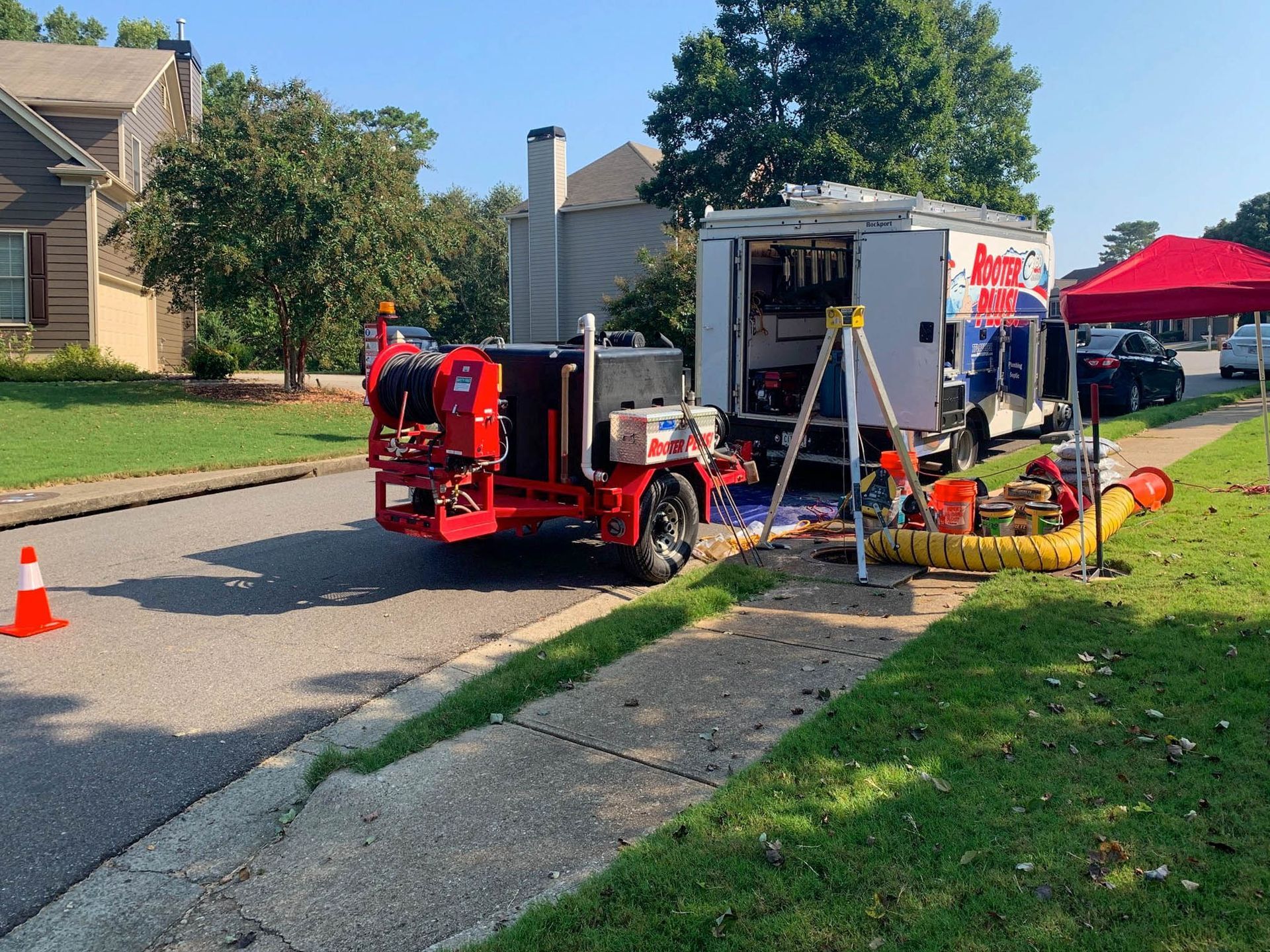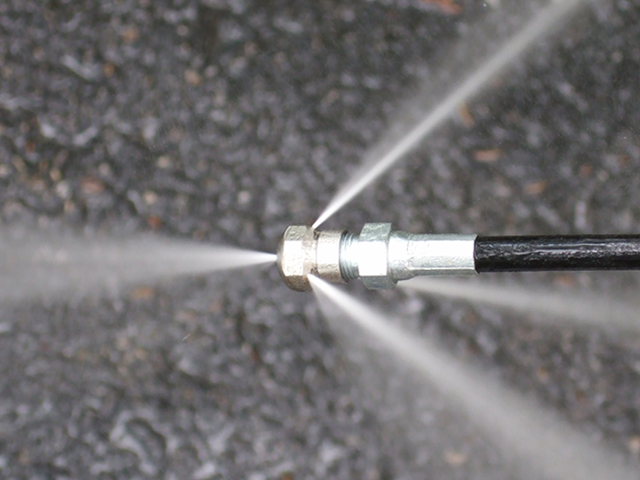Hydro Jetting Services
What is Hydro Jetting?
Pipe cleaning is commonly performed by a technique known as sewer jetting. Sewer jetting is the application of streams of high-pressure water for use within pipes for cleaning and debris removal. Water at the correct high pressure can cut roots, dissolve blockages, and emulsify grease and soaps while spray washing pipe wall surfaces. As part of the jetting process, the water from the nozzle can also wash away accumulated dirt or debris on the bottom of the pipe at the same time.
Here at RooterPLUS, we use the latest in hydro jetting technology. If you're in need of hydro jetting services,
contact RooterPLUS and we will provide professional 60-minute service to assess your needs.
Recent Reviews
Applications for High-Pressure Jetting Units
Sanitary or Mainline Sewers
Wastewater flows freely through sewers via gravity. Sewers are connected at various intervals by manholes that sometimes allow for a change of direction of wastewater flow. Sewer blockages can form as a result of root infiltration, food grease buildup, soap residue buildup and dirt and debris accumulation among other things.
Laterals
Pipes that connect building drainage systems to municipal sewers are considered to be part of the property and the responsibility of the property owner. Typically, laterals are 4" and 6" diameter pipes that connect directly to municipal sewer pipelines, but can be larger for commercial or industrial buildings. Lateral blockages can form as a result of root infiltration, food grease buildup, soap residue buildup and dirt and debris accumulation. Blockages can also occur from pipe failure or collapse that will require excavation to correct.
Drains
Drainage pipes are located under or within buildings and are considered to be part of the property and the responsibility of the property owner. Drain blockages can form as a result of food grease buildup, soap residue buildup and dirt and debris accumulation. Storm drain blockages can form as a result of root infiltration, silt, dirt and debris accumulation. Blockages can also occur from pipe failure or collapse that will require excavation to correct.

How Sewer Jetting Works
First, we attach a jetting nozzle to the end of a high-pressure hose and a high-pressure water pump. Jetting nozzles have small precision-machined jets to restrict water flow from the jetting pump, causing high pressure to build within the hose. As the pressurized water is expelled from the nozzle jets, it reverts from pressure to velocity, creating thrust that allows the nozzle to pull the jetting hose. With this pressurized system, high-pressure jetting hose coils on a hydraulic-powered hose reel (up to 500') and is released by the operator who controls the travel speed and distance of the nozzle up the pipe. There are different jetter heads for different applications, and the experts at RooterPLUS have access to all different types.
Pressurized water expelled from the nozzle jets cleans debris and removes pipe blockages or roots from the inside of the pipe while traveling through the pipe. During this action, water from the nozzle jets effectively forms a curtain or wall of high-pressure water that forces the debris downstream. Sewer jetting technology can be applied to clean all size pipe diameters with the appropriate size of a high-pressure jetting unit.



Share On: